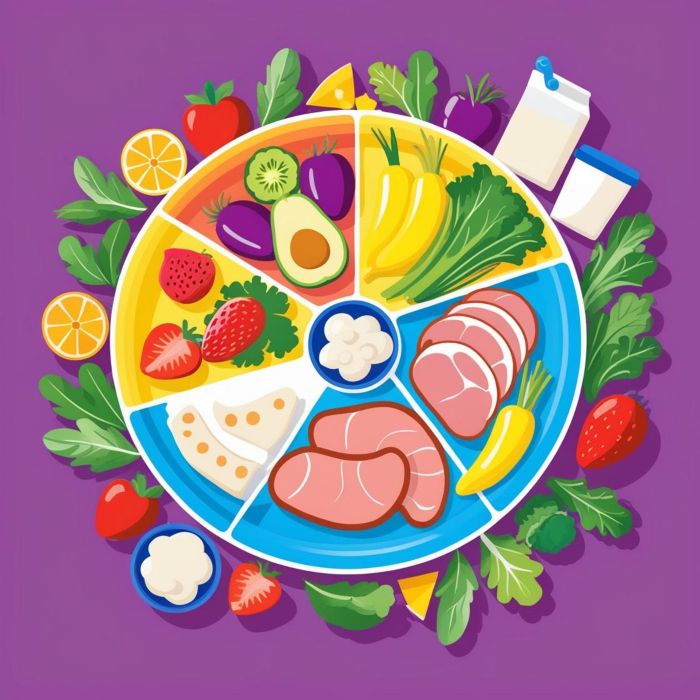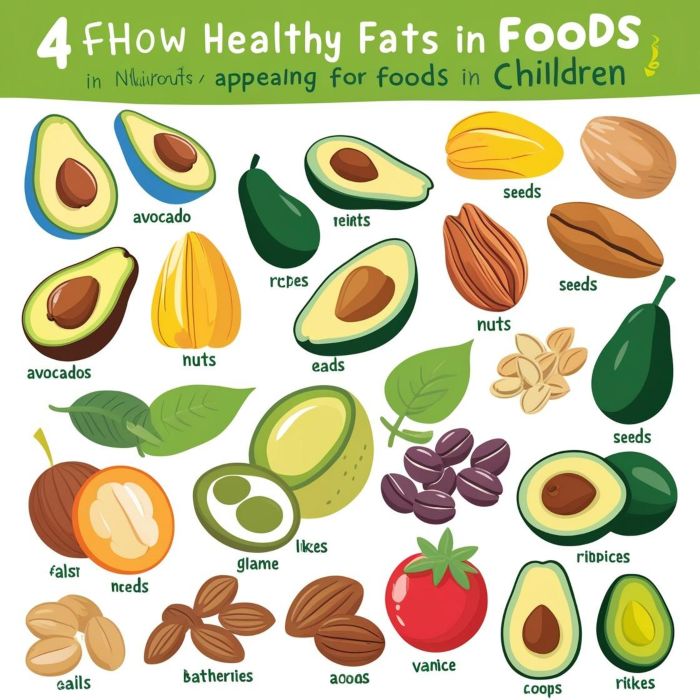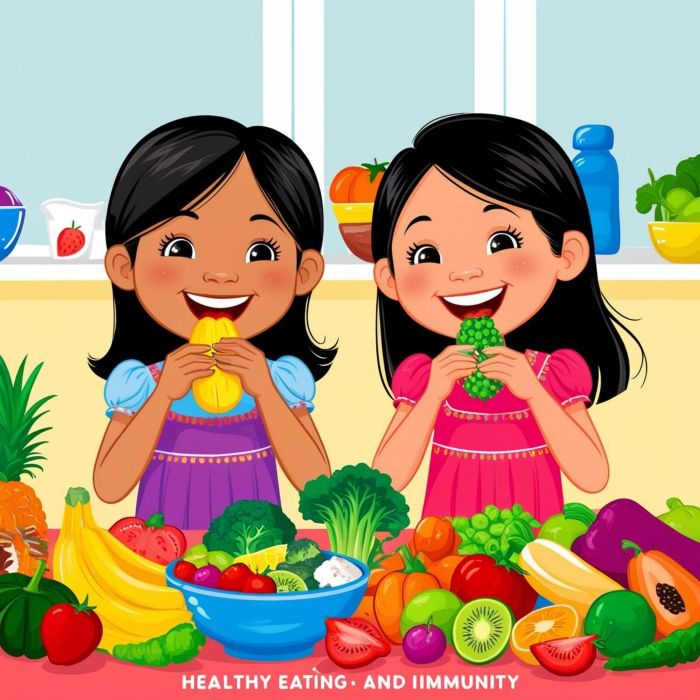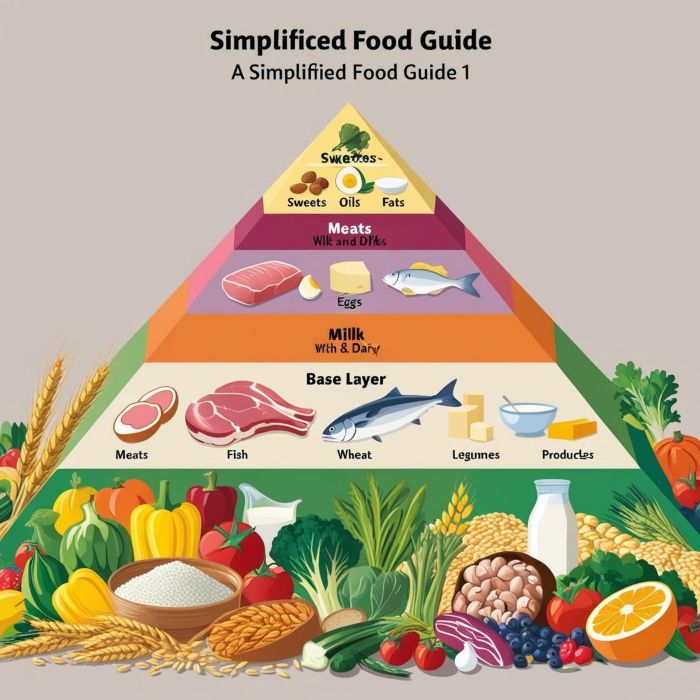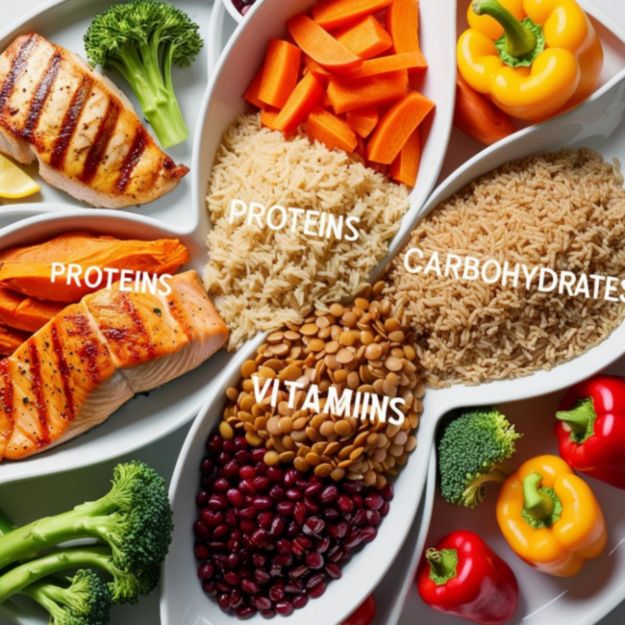Major Nutrients in Our Food
Food is part of our daily life. It supplies the needed nutrients and calories to develop and stay healthy with us while playing, studying, or working. A variety of foods needs to be present in a body for its good functioning; otherwise, these nutrients within the various food materials make a human remain healthy and energetic. In this lesson, we will discuss the various components of food and the major nutrients that our bodies require for good health.
Components of Food
Food comprises many components; each has a special role in keeping us healthy. Let's learn more about them:
Carbohydrates
Carbohydrates are the primary source of fuel for the body. The body needs carbohydrates to run, jump, study, and even think! Carbohydrates are found in the following foods:
-
Bread
-
Rice
-
Pasta
-
Potatoes
-
Fruits (such as apples, bananas, and oranges)
When we consume carbohydrates, our body breaks them down into sugar, which is used to provide energy.
Proteins
Proteins play a significant role in building up and repairing our muscles, tissues, and cells. Proteins are also needed to make our body fight off illnesses. Protein-rich foods include:
-
Meat (chicken, beef, and pork)
-
Fish (salmon and tuna)
-
Eggs
-
Beans
-
Nuts (almonds and peanuts)
Protein intake can help our body grow and get strong.
Fats
Another source of energy is fats, and they help store certain vitamins, like vitamins A, D, E, and K, in our bodies and protect our organs. It's also essential to consume fats in moderation since too much fat may lead to health problems. Healthy fats are present in such foods as:
-
Olive oil
-
Avocados
-
Nuts
-
Fish,
especially oily fish, such as salmon
Butter and cheese, though to be consumed in moderation
Fats enable to warm us and our inner body parts are cushioned by the protective layer.
Vitamins
These play an important role for overall well being of human body. This maintains body strength and cures illness or infections; it is protecting the outer covering like skin, eyes, or bone system.
Some vitamins:
-
Vitamin A present in carrots, potatoes, or spinach in form of helping keep eyesight correct.
-
Vitamin C found in orange, strawberries or tomatoes helping the human body resist the infection or some bacteria attacks.
-
Vitamin D: Fats and Oils; Sunlight; maintain strong bones
Minerals
Minerals are substances which your body requires to accomplish several important functions. They ensure that our bones grow stronger, maintain our blood healthy, and that our muscles work properly. Some common minerals include;
-
Calcium: In milk, cheese, and leafy vegetables; helps the bones and teeth grow strong
-
Iron: In meat, beans, and spinach; carries oxygen in the blood.
-
Potassium: Fruits, potatoes, oranges; maintains proper functioning of our muscles and nerves.
Water
Water has often been referred to as the "most important nutrient" since it is essential for our bodies. Water is involved in the process of digestion, the removal of waste products from our bodies, maintaining the good condition of our skin, and regulation of body temperature. We are, therefore, required to consume much water every day and remain hydrated.
Real Life Examples
Eating Fruits and Vegetables for Immunity:
In case you feel a cold coming up, eating foods that contain vitamins can help boost your immune system. For instance, when you take an orange or orange juice, it provides you with vitamin C, and your body will fight out the sickness and stay healthy.
Proteins for muscle repair after exercise
After exercise, your muscles need to be recovered. A basketball player may drink a protein shake or consume chicken salad for rebuilding and repairing muscle tissues to improve his performance in the next game or practice.
Healthy Fats for Energy:
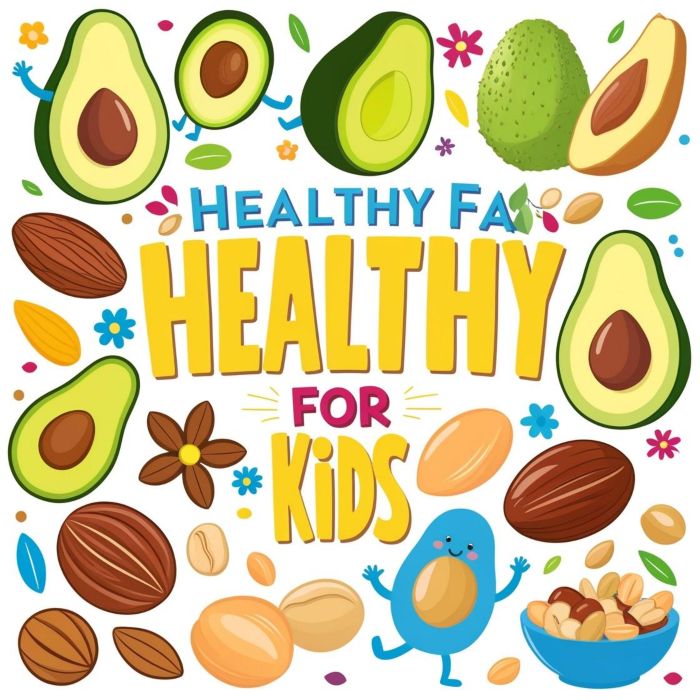
Healthy fats that last for a long time, from avocados or nuts, serve as energy. For instance, to keep the energy levels while climbing, a hiker would first eat a handful of nuts before the climb, and the fats within would give them the energy for a long time while continuing to climb.
Importance of Balanced Diet
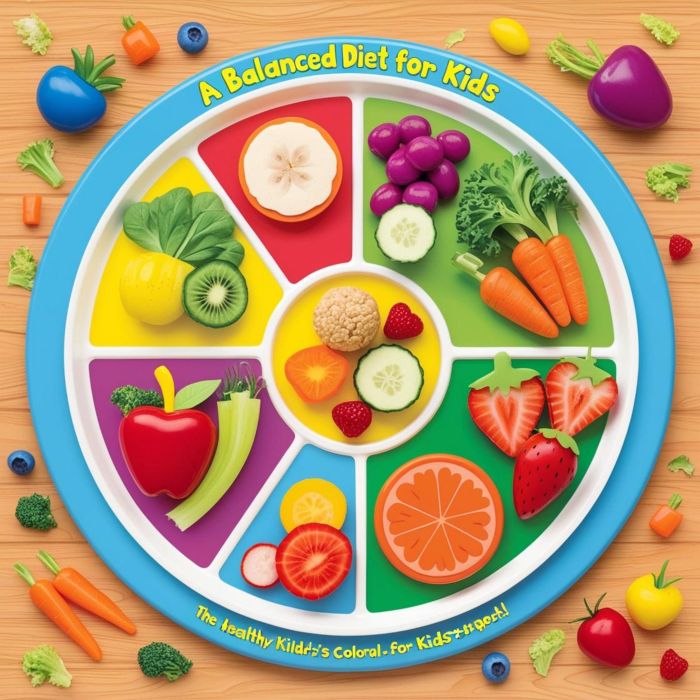
A balanced diet is eating different kinds of food in the right amounts. This helps us get the nutrients we need from each food group to stay healthy. A variety of foods, including fruits, vegetables, whole grains, proteins, and healthy fats, are necessary for good health.
Let's aim for making sure we include foods from all five groups in each of our meals. Therefore, the ideal breakfast will look something like this:
-
whole grain toast carbohydrates;
-
eggs proteins;
-
a glass of milk, calcium;
-
a banana potassium;
-
a glass of water.
That is eating a balanced diet. The balanced diet helps your body perform optimally.
Food Pyramid
The food pyramid is a guide that explains which type of food we should have in greater proportions. Here is an easy version of the food pyramid:
-
Base: These foods to be consumed the most: fruits, vegetables, and grains.
-
Middle: These should be taken moderately: meat, fish, eggs, dairy, and beans.
-
Top: These should be taken very sparingly: sweets, oils, and fats.
Healthy Eating Tips
-
Drink plenty of water each day.
-
Eat colorful fruits and vegetables.
-
Opt for whole grains rather than refined grains (opt for brown bread instead of white).
-
Prepare for food which is high in protein, such as fish, eggs, beans, and nuts.
-
Limit unhealthy fats and sweets
Fun Fact
-
Avocados are actually fruits, not vegetables! Despite their widespread use in savory dishes, avocados are technically members of the berry family and, therefore, a fruit. They are part of the flowering plant family known as Lauraceae.
-
Tomatoes are technically both fruits and vegetables! Botanically, tomatoes are fruits because they are the result of a flower and contain seeds. In the kitchen, however, they're used like vegetables because they're savory rather than sweet.
-
Peanuts are not nuts! Yes, it's true - although they bear the name "peanut", peanuts are technically legumes, like beans or lentils, as they grow underground, unlike actual nuts such as almonds and walnuts which grow on trees.
-
You consume approximately 35 tons of food in a lifetime. That's equal to the weight of six elephants! And eating the proper kinds of food is how you can be certain all those tons are full of nutrients to keep you healthy.
-
You can’t taste food without saliva! Your taste buds need saliva to work properly. It helps break down the food so your tongue can detect the flavors. So, if you’re ever tasting something, remember that saliva plays an important role!
Food and Nutrition Quiz
What is our body's primary energy source?
-
a) Proteins
-
b) Carbohydrates
-
c) Vitamins
Which food is high in proteins?
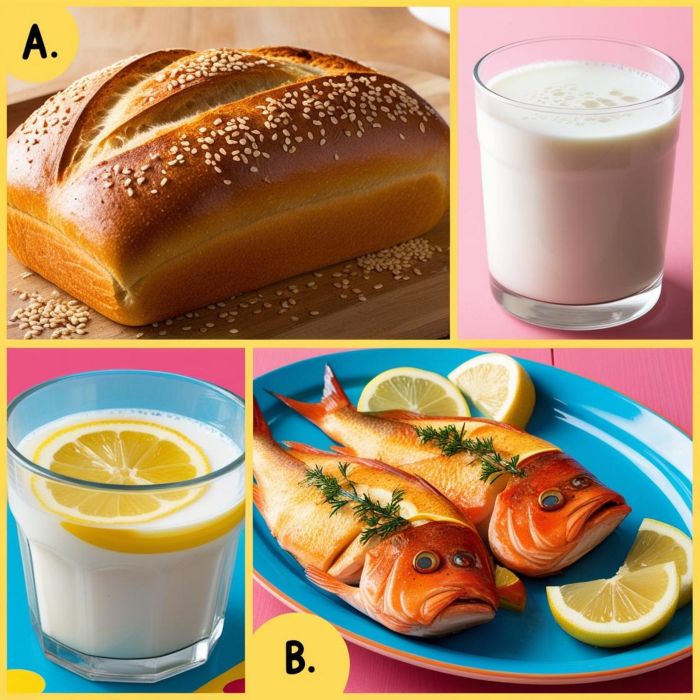
-
a) Bread
-
b) Milk
-
c) Fish
What does water help our body do?
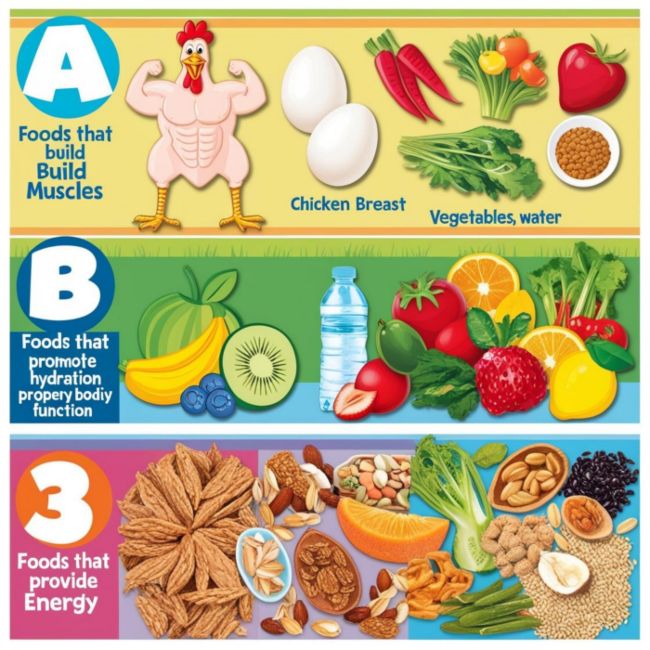
-
a) Build muscles
-
b) Stay hydrated and function well
-
c) Give us energy
Which of these is a good source of vitamins?
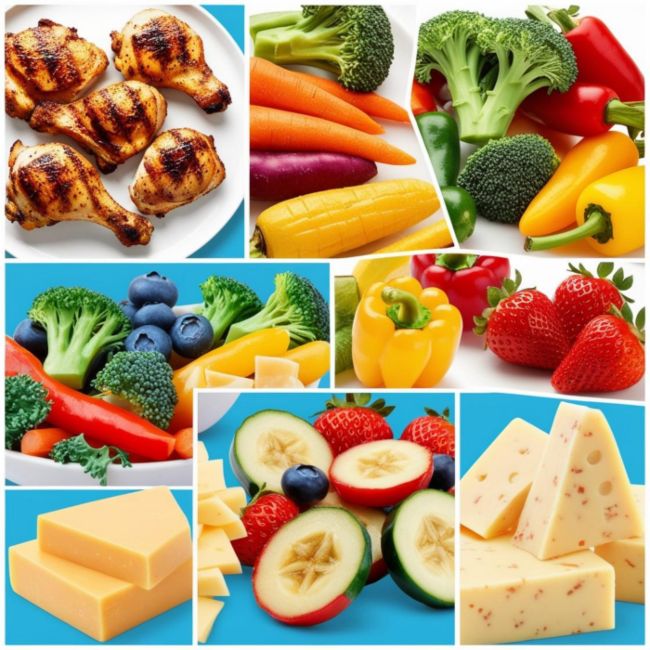
-
a) Meat
-
b) Vegetables and fruits
-
c) Cheese
What should we eat in moderation to stay healthy?
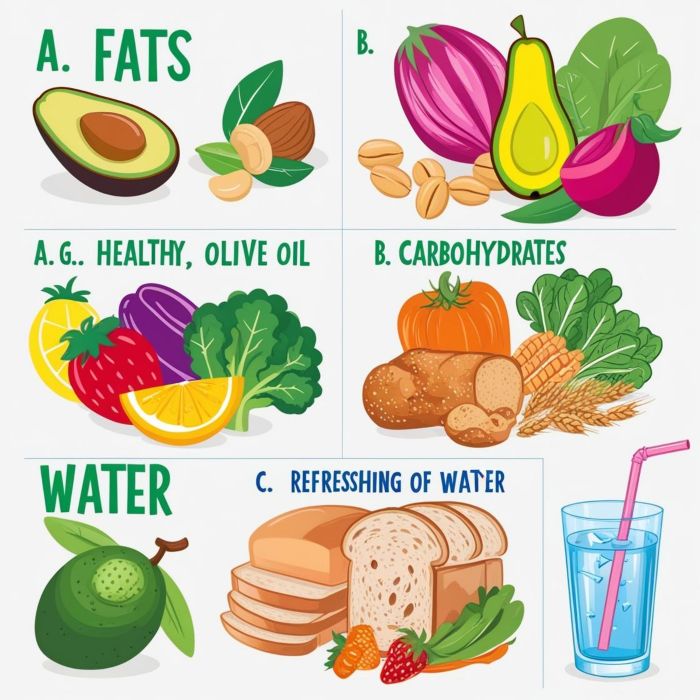
-
a) Fats
-
b) Carbohydrates
-
c) Water
Which food is rich in calcium?
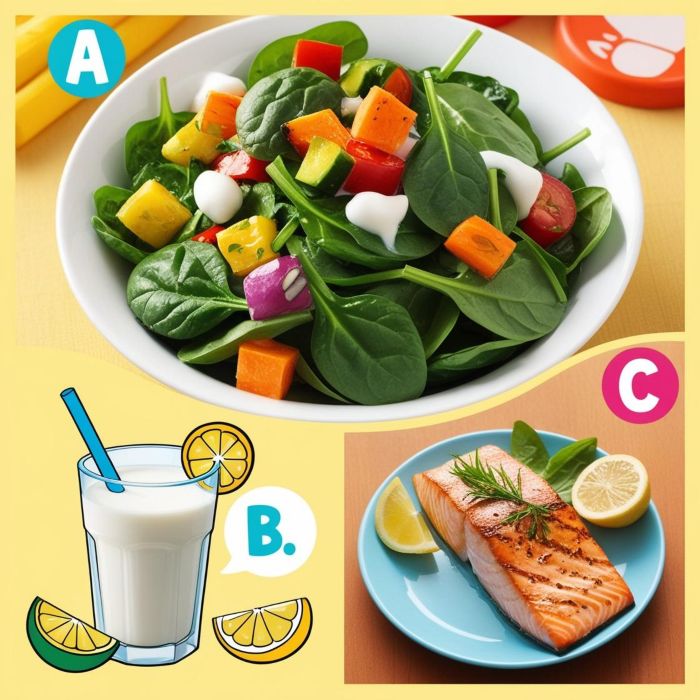
-
a) Spinach
-
b) Milk
-
c) Fish
Why are proteins important for our body?
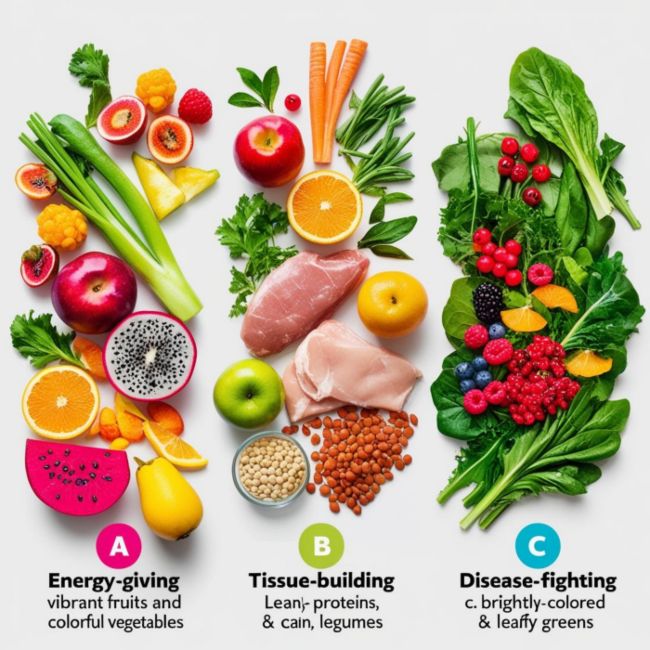
-
a) They give us energy
-
b) They help build and repair tissues
-
c) They protect us against diseases
Conclusion
In a nutshell, food and nutrition are essentials for our health and growth. The basic elements of food, such as carbohydrates, proteins, fats, vitamins, minerals, and water, give us the nutrients our body requires for energy, strength, and proper working. Eating a balanced diet with a variety of foods helps keep us healthy and strong. By understanding the importance of these nutrients and making healthy food choices, we can support our bodies, stay energized, and feel our best every day.
FAQs
What are the major nutrients that our body needs?
The major nutrients required by the body are carbohydrates, proteins, fats, vitamins, minerals, and water. These nutrients are needed for energy, growth, repair, and good health.
What are the 5 most important nutrients?
Carbohydrates: Supplies energy to the body's functions.
Proteins: They build and repair tissues, and they also aid in immune function.
Fats: They supply energy, store vitamins, and protect organs.
Vitamins: They aid in metabolism and body functions.
Minerals: Support health of bone, nerve impulses, hydration.
Where does Vitamin A go?
Vitamin A comes from food. Foods come high in Vitamin A are those which are meaty organ, red vegetables like carrot and yam, also green like your favorite leafy greens, also from all fortified milk product and eggs
Where would I get my B12?
Vitamin B12 can be acquired through an animal source. It also can come from fortified breakfast cereals as well as plant based milks to use by vegetarians.
Practice Worksheet
Easy Level Worksheets
Intermediate Level Worksheets
Advanced Level Worksheets
CBSE Schools In Popular Cities
- CBSE Schools in Bangalore
- CBSE Schools in Mumbai
- CBSE Schools in Pune
- CBSE Schools in Hyderabad
- CBSE Schools in Chennai
- CBSE Schools in Gurgaon
- CBSE Schools in Kolkata
- CBSE Schools in Indore
- CBSE Schools in Sonipat
- CBSE Schools in Delhi
- CBSE Schools in Rohtak
- CBSE Schools in Bhopal
- CBSE Schools in Aurangabad
- CBSE Schools in Jabalpur
- CBSE Schools in Jaipur
- CBSE Schools in Jodhpur
- CBSE Schools in Nagpur
- CBSE Schools in Ahmednagar
- CBSE School In Tumkur

